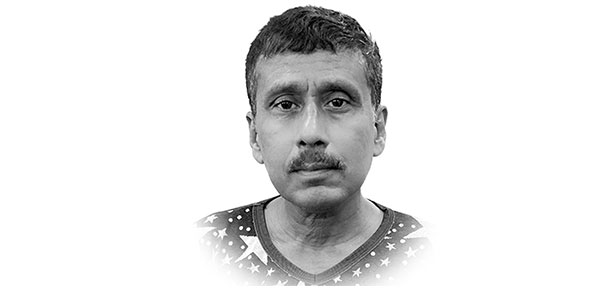Criminals in police uniform
POLICE violence and brutality have become a common occurrence in India.The police are supposed to protect the law, but what happens when they abuse the powers and become the perpetrators themselves?
Custodial violence means torture in police custody.Torture is no doubt an international phenomenon but the incidents are much more in developing countries and the overall situation in India is far from being satisfactory.
Custodial deaths are perhaps one of the worst crimes in a civilised society governed by the Rule of Law.
The police officers, who are regarded as the custodians and guardians of law, have acting in just the contrary manner and are failing to protect the very basic right to life guaranteed by Article-21 of the Indian Constitution.
Custodial violence and abuse of police power is not only peculiar to this country but it is also widespread throughout the world.
However, in our country it is considered second to none.It has been a concern of the international community because the problem is universal and the challenge is almost global.
Though international laws criminalise torture, torture enjoys unprecedented license in India.
Torture seems to be legalised in India.The methods of torture adopted by government officers involve gross forms of inhumanity.
In recent years, third degree torture and custodial deaths have become an intrinsic part of police investigations and the injury inflicted on the prisoners is sometimes unbearable.
The police keep taking the law into their own hands and keep on framing innocent people when they cannot find the real culprits.
Custodial deaths in police stations never seems to end in our country.The lack of action against the criminals in khaki is to be blamed for the recurrence of such incidents.
The force that is supposed to uphold the laws are routinely found misusing their powers and disrespecting the laws of the country.
We often hear of custodial deaths in police stations but no probe is conducted against them.
As per the recent study of the National Human Rights Commission (NHRC), Uttar Pradesh has topped the list of human rights violation cases three times in a row.
Around 40% (almost half) of human rights violation cases lodged annually by the National Human Rights Commission (NHRC) in the past three years were from Uttar Pradesh, according to data provided by the Ministry of Home Affairs to the Rajya Sabha on December 8, 2021.
The Uttar Pradesh police force has resorted to brutal and excessive force, including firing into crowds, beating up bystanders, detaining, and torturing men, women, and children alike.
Torture in police stations is so routine, that they are often used merely for impressing spectators.
Whenever the police are accused of custodial torture and deaths, in such cases a fair and impartial investigation is rare.
The alarming rate at which police brutality has cast a shadow over Uttar Pradesh should scare us all as citizens collectively.
If custodial violence is allowed to continue, public faith in the police will be completely eroded and the system of justice will collapse.
With CCTVs installed in the police station, it can decrease the flagrant abuse of power, disproportionate force on the poor and minorities, unlawful activities which lead to wrongful confinement, misconduct, corruption, impartial inquiry, destruction of evidence, custodial torture, furnishing false evidence, and unwarranted high-handedness that gives them more impetus to commit a crime under the garb of maintaining law and order in the state.
If Uttar Pradesh has nothing to hide, then it should have no problem with installing CCTVs in police stations. If Uttar Pradesh sets an example, other states will definitely follow.
—The writer is contributing columnist, based in Mumbai, India










